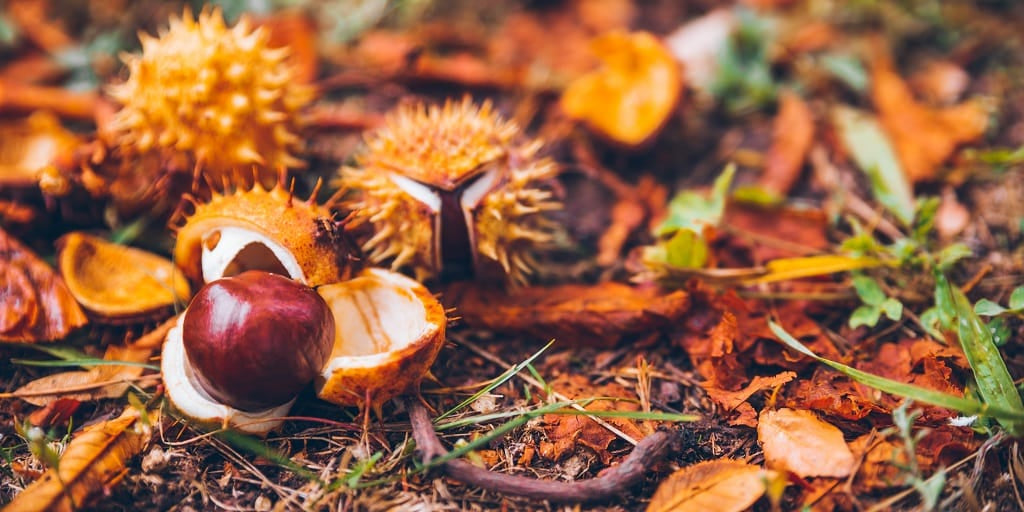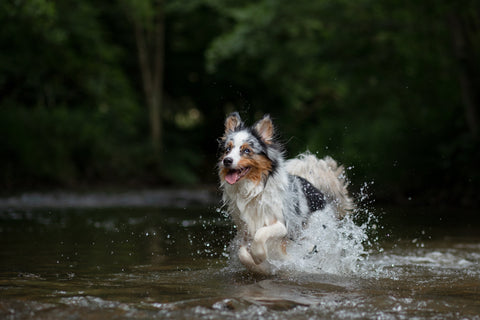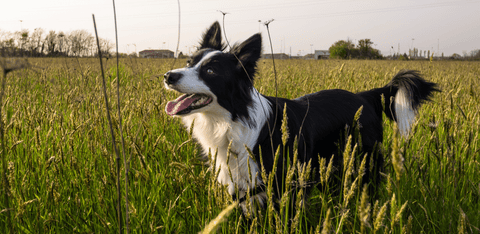

Are conkers toxic to dogs?
Conkers and autumn go together. They conjure up the essence of that ‘back to school’ feeling, perhaps because their gorgeous glossy mahogany colour echoes the shiny leather of new shoes.
When we see an abundant scattering of conkers under a horse chestnut tree, it’s hard to resist the temptation to pick a few up and put them in our pocket for later. Just what we’ll use them for is another thing.
But although humans may be drawn to conkers, you might be surprised to hear that they are toxic to our canine companions. Here, we take a closer look at these quintessential symbols of Autumn and discover how they can harm your dog and your dog's digestive health.
What is a conker, exactly?
Conkers are the seeds of the horse-chestnut tree. They’re contained in a bright green, prickly covering that must be broken open to reveal the seed inside.
According to the National Forest Inventory, there are around 470,000 horse chestnut trees in Great Britain. Many of these are in parks, gardens, streets, and on village greens, all of which are popular places for people to walk their dogs.
Conker facts
- Contrary to popular folklore, there's no proof that conkers repel spiders
- However, the triterpenoid saponin in conkers might deter moths
- Horse chestnut extract is said to improve circulation
- Deer and wild boar can safely eat conkers
- Despite the name of the tree, the seed of the horse chestnut is toxic to horses
When do conkers appear?
Conkers usually start to fall from the trees in late September. The fact that the World Conker Championships are held in early October suggest that fans of the game, ‘conkers’, expect to be able to collect some prize specimens around that time.
As a rule, September to early October is the key time to expect to see conkers spreading out under horse chestnut trees in the Autumn. However, they can start to fall as early as August.
Toxic to eat for dogs
Conkers may seem safe and unassuming, but they are actually toxic to dogs. This is due to a chemical component in the seed called aesculin, which is also present in the leaves and bark of horse-chestnut trees. A conker could also cause a blockage in the intestines if eaten. (Incidentally, conkers are mildly toxic to children, too, and can cause a stomach upset if eaten.)
Keep conkers at bay during outdoor walks and play
Conkers have a very bitter flavour, which is likely to deter many dogs from eating them. Unfortunately, though, some dogs do end up eating conkers and becoming ill from them.
It’s always best to stay on the safe side and keep your dog away from conkers when playing outside. Some tips include:
1. Keeping a toy with you on walks and during outside play, so you can distract your dog if they start investigating conkers.
2. Making sure you don’t use conkers in games with your dog, such as by throwing them for your dog to catch.
3. Avoid going for a walk before your dog’s meal, when they are likely to be most hungry.
Effects of conker poisoning
According to the Blue Cross animal charity, the signs of illness can appear within one to six hours following your dog eating conkers, but can also appear up to two days later.
Symptoms that your dog has conker poisoning include:
- Vomiting
- Diarrhoea
- Restlessness and discomfort
- Abdominal pain
- Muscle tremors
- Loss of appetite
- Collapse
Depending on the amount of aesculin your dog eats – influenced by the number of conkers eaten – these signs are likely to be increasingly serious, and can even be fatal.
Conkers can also be a choking hazard, and can obstruct your dog’s bowel.
How to treat conker poisoning
If you suspect that your dog has eaten conkers, you should take them to a vet straight away.
If your dog has eaten conkers recently, your vet is likely to give them a treatment that induces vomiting. Your pup might also need an intravenous drip.
If there’s an internal blockage caused by conkers, surgery may be necessary.
Stay alert
Luckily, with the right treatment, most dogs recover from horse-chestnut poisoning.
In the meantime, while you’re out and about this autumn walking your dog, steer clear of the chestnut trees, tell your kids that conkers are poisonous for dogs, and carry a toy to distract your pup from those beguiling mahogany brown seeds.


